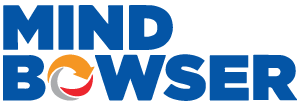Medtech devices rapidly transform healthcare, offering more personalized and efficient care options. From wearable health monitors to advanced surgical tools, these technologies are bridging gaps in patient care. The future of healthcare lies in how well these devices integrate into existing systems to streamline operations and improve patient outcomes.
Seamless integration of MedTech devices is crucial for enabling healthcare providers to work more effectively. It allows for real-time data sharing, reduces human error, and enhances coordination among medical teams, ensuring a more cohesive and efficient healthcare system.
According to a KPMG analysis, the medical device market is positioned for continuous expansion. Worldwide annual sales are expected to climb by more than 5% per year and reach approximately US$800 billion by 2030.
➡️ Why Integration is Key for Medtech Devices
Integration is important in improving the efficiency of MedTech devices and streamlining workflows across healthcare environments. By integrating medical devices with existing systems, healthcare providers can easily access real-time data, enabling faster decision-making and reducing administrative burdens. It creates a smoother, more efficient process for patients and healthcare teams, minimizing delays and errors.
Integrated medtech devices significantly impact patient outcomes and care coordination. When devices are connected, healthcare providers can monitor patient data in real-time, allowing for quicker interventions and more personalized treatment plans. This seamless flow of information ensures care teams are always aligned, improving patient care and reducing chances of miscommunication.
For instance, MedTech devices benefiting from integration include wearable health monitors, remote patient monitoring systems, and smart diagnostic tools. These devices collect valuable patient data and provide instant feedback and insights when integrated with hospital systems. This real-time connectivity enhances the tracking of patient progress, adjusting treatments promptly, and improving overall healthcare delivery.
Here are a few key points you should know while integrating with Medtech Devices:

1️⃣ Data Interoperability Issues
One of the biggest challenges in MedTech device integration is data interoperability. Different devices and systems often use varied formats and communication protocols, making it difficult to exchange data smoothly. Without standardized communication, integrating new devices can lead to data silos or misinterpretations of vital patient information. Addressing this issue requires a focus on developing universal standards and protocols.
Collaboration between tech companies and healthcare providers is essential to ensure that medtech devices can share data accurately, streamlining the integration and improving care coordination.
Related Read: The Interoperability Challenge in Healthcare
2️⃣ Security and Privacy Concerns
Medtech devices often handle sensitive patient data, which makes security and privacy critical concerns. Healthcare organizations must ensure that medical device integration complies with strict privacy regulations, such as HIPAA, to protect patient information. The risk of data breaches increases when devices are interconnected. Implementing encryption, access control, and continuous monitoring is necessary to protect data. Collaboration between technology providers and healthcare organizations is essential to designing security systems prioritizing patient data protection while enabling efficient device integration.
Related Read: How HealthConnect CoPilot Ensures Patient Data Security and Privacy
3️⃣ High Implementation Costs
Integrating medtech devices into existing healthcare systems often requires significant infrastructure, software, and training investments. High implementation costs can deter healthcare organizations from adopting new technologies, particularly for smaller facilities with limited budgets. Addressing these financial challenges requires strategic planning, including phased integration approaches and evaluating the long-term benefits of medical device integration. By working closely with tech companies, healthcare providers can ensure the solutions they adopt provide value without overwhelming their budgets.
4️⃣ Technical Complexity and Maintenance
Integrating multiple medtech devices can be overwhelming for healthcare IT teams, especially when dealing with devices from various manufacturers. Ensuring compatibility, regular maintenance, and software updates can be time-consuming and costly. Companies must collaborate with healthcare organizations to simplify integration processes, offering easy to implement and maintain solutions. This partnership ensures that healthcare teams can focus on patient care without being bogged down by technical challenges and device management.
5️⃣ Resistance to Change in Healthcare Settings
Healthcare organizations often resist adopting new technologies, especially from staff accustomed to existing workflows. Integrating medtech devices can require changes in daily routines, leading to disruptions and increased workload. Addressing this challenge involves efficient staff training and ensuring that new systems are user-friendly. Collaboration between healthcare providers and tech companies is key to developing integration strategies that minimize disruption and help staff adapt more easily to the new technology.
➡️The Role of AI and Data in Medtech Device Integration
AI and data help MedTech devices integrate, improving real-time monitoring, decision-making, and personalized care. Let's get to know more about it in the details below:
With AI algorithms analyzing real-time information from integrated devices, healthcare providers gain actionable insights, helping them make informed decisions more quickly. For example, AI can detect anomalies in patient vitals from remote monitoring devices, allowing doctors to intervene before conditions worsen. This real-time support enhances clinical accuracy and ensures patients receive the right treatment at the right time.

1️⃣ Importance of Data Sharing and Interoperability Among Devices and Systems
Data sharing and interoperability are key to successful medtech device integration. When medical devices can communicate with one another and EHR systems, it ensures that healthcare providers have a complete picture of a patient’s health. Interoperability helps eliminate data silos, making information from different sources available instantly. For instance, wearable devices and in-hospital equipment must work together to provide detailed insights. This allows doctors to track patient progress, compare metrics, and adjust treatments accordingly, improving patient care and coordination.
Related Read: Revolutionizing Electronic Health Records: The Future of AI in Healthcare
2️⃣ AI-Powered Predictive Analytics for Proactive Healthcare
AI’s ability to analyze data from MedTech devices supports real-time decisions and provides predictive insights. With AI-driven predictive analytics, healthcare providers can foresee potential health issues before they arise. For example, AI can analyze patterns in patient vitals collected from integrated devices, predicting risks like heart attacks or chronic disease complications. This proactive approach allows clinicians to take preventive measures, improving patient outcomes and reducing hospital readmissions. By integrating AI with MedTech devices, healthcare becomes more focused on prevention and long-term wellness.
3️⃣ Real-World Applications of AI in Medtech Device Integration
AI integration with MedTech devices is already impacting real-world healthcare settings. In areas like remote patient monitoring, AI analyzes data from wearable devices, offering real-time updates on patient conditions. In critical care units, AI helps manage complex devices like ventilators, adjusting settings based on patient data to optimize treatment. These real-world applications show how AI can simplify device management while improving patient care. When medtech devices are integrated into healthcare systems, they provide immediate clinical support and long-term patient management.
4️⃣ Improving Efficiency with AI in Medtech Device Integration
AI enhances the efficiency of MedTech device integration by automating routine tasks and processing complex data sets. For example, AI can automate the collection and interpretation of data from various devices, reducing the manual workload for healthcare staff. This automation allows medical professionals to focus on patient care rather than administrative tasks. Furthermore, AI can prioritize critical alerts from integrated devices, ensuring doctors respond quickly to urgent cases. This improved efficiency leads to better patient outcomes and streamlined healthcare operations.
Related Read: Leveraging AI in Healthcare Software Testing

Free eBook on Super Smart AI: Game Changer for Healthcare
Key Insights You Will Gain Through This Case Study :
- AI in Diagnostics and Treatment
- Operational Efficiency
- Patient Engagement
- Data Management and Security
- Our Expertise and Strategies
➡️ The Future of Healthcare with Fully Integrated Medtech Devices
The future of healthcare lies in fully integrated MedTech devices, driving better patient outcomes through real-time data sharing and coordination.
1️⃣ How Fully Integrated Medtech Devices Will Shape the Future of Healthcare
Fully integrated medtech devices are set to transform healthcare by making real-time patient data readily available to care providers. These devices will enable continuous monitoring and data collection, allowing for proactive interventions and reducing the need for in-person consultations. As MedTech devices become more interconnected with EHR systems, healthcare teams will have access to complete, up-to-date patient information at all times. This integration will result in more coordinated care, minimizing errors, and improving overall patient outcomes.
2️⃣ Predictions for How This Technology Will Transform Patient Care
MedTech device integration will fundamentally change patient care by enabling personalized treatment plans based on real-time data. Devices such as wearables, remote monitoring systems, and diagnostic tools will work together to provide healthcare providers with a comprehensive view of a patient’s health. This will allow for faster diagnosis and treatment, improving patient outcomes and reducing hospital readmissions. In the future, MedTech device integration will also enable virtual consultations, allowing healthcare professionals to monitor and manage patient care remotely.
Related Read: Patient Monitoring: A Guide for Healthcare Providers
3️⃣ Importance of Adopting Integration-Focused Strategies Now for Future Growth
As healthcare continues to embrace digital transformation, adopting integration-focused strategies for MedTech devices is crucial for staying competitive and improving patient care. Investing in MedTech device integration with EHR systems today will set healthcare providers up for success in the future. By adopting these technologies now, organizations can streamline workflows, reduce inefficiencies, and improve patient outcomes. In addition, preparing for MedTech device integration will allow healthcare providers to meet future regulatory standards and ensure long-term success in an increasingly digital landscape.
4️⃣ Medtech Devices Integration: How It Can Help Healthcare Providers
Integrating medtech devices into healthcare systems helps providers access comprehensive patient data in one place. This integration allows for better communication between medical teams, faster decision-making, and more accurate treatment plans. Devices like glucose monitors, blood pressure cuffs, and wearable ECGs can sync directly with EHRs, ensuring that vital information is available to all relevant healthcare providers. This seamless data flow improves patient outcomes by enabling quicker responses to health issues and providing a complete picture of the patient's condition.
How Mindbowser Can Assist with Medtech Device Integration
Mindbowser offers comprehensive support in medtech device integration, helping healthcare organizations streamline processes and improve patient outcomes. We specialize in integrating various medtech systems, including Telehealth, Laboratory Information Systems, Clinical Trial Management Systems, and Medical Billing, with existing EHR infrastructures.
Our custom solutions ensure a smooth transition, designed to meet the unique needs of each healthcare organization. By partnering with Mindbowser, healthcare providers can improve data accuracy, simplify workflows, and stay ahead of technological advancements, preparing confidently for the future of healthcare.
Frequently Asked Questions
- How does integrating medtech devices improve healthcare workflows?
Integrating medtech devices streamlines data sharing, allowing healthcare providers to access real-time patient information, improving decision-making and reducing administrative burdens.
- What are some examples of medtech devices benefiting from integration?
Examples include wearable health monitors, remote patient monitoring systems, and diagnostic tools that share data directly with healthcare systems for better care coordination.
- How does medtech device integration impact patient outcomes?
Medtech device integration improves patient outcomes by enabling personalized treatment plans and quicker interventions through real-time data access and coordination among care teams.
- How can healthcare organizations prepare for medtech device integration?
Healthcare organizations can adopt integration-focused strategies by ensuring their systems are compatible with new technologies and working with experts to facilitate a smooth transition.

Manisha Khadge, CMO Mindbowser
Manisha Khadge, recognized as one of Asia’s 100 power leaders, brings to the table nearly two decades of experience in the IT products and services sector. She’s skilled at boosting healthcare software sales worldwide, creating effective strategies that increase brand recognition and generate substantial revenue growth.
Let's Get In Touch
One thing that really stood out to me is the culture and values of the Mindbowser team.

Sanji Silva
Chief Product Officer, Mocingbird
I am so glad I worked with Mindbowser to develop such an Impactful Mobile app.

Katie Taylor
Founder and CEO, Child Life On Call
Mindbowser was an excellent partner in developing my fitness app.

Jirina Harastova
Founder, Phalanx Ubiquity
The team understood the challenges faced by both CME administrators and clinicians and translated that understanding into building the platform. We're totally impressed by their deep domain and technology expertise in creating a solution that empowers both administrators and medical professionals.

Ian Modam
CEO & Co-Founder, Mocingbird
Mindbowser team’s expertise and dedication has been instrumental in improving our platform’s efficiency. We have observed a reduction in average delivery time since the integration. Kudos to the wonderful team!!!!

Anish J. Shah
Founder, BirthModel
Mindbowser built both iOS and Android apps for Mindworks, that have stood the test of time. 5 years later they still function quite beautifully. Their team always met their objectives and I'm very happy with the end result. Thank you!

Bart Mendel
Founder, Mindworks
Some of the features conceived, implemented, and designed by the Mindbowser staff are amongst our most popular features.

Matthew Amsden
CEO, Proofpilot
Mindbowser is one of the reasons that our app is successful. These guys have been a great team.

Dave Dubier
Founder & CEO, MangoMirror
The Mindbowser team's professionalism consistently impressed me. Their commitment to quality shone through in every aspect of the project. They truly went the extra mile, ensuring they understood our needs perfectly and were always willing to invest the time to deliver exactly what we envisioned.

Spencer Barns
Chief Technology Officer, New Day Therapeutics
Kudos for all your hard work and diligence on the Telehealth platform project. You made it possible.

Joyce Nwatuobi
CEO, ThriveHealth
Post a comment Cancel reply
Related Posts
Digital Biomarkers: The Future of Digital Measurement in Healthcare
Digital biomarkers are reshaping how health is monitored and assessed. These innovative tools use data…
Unlocking the Potential of Software as a Medical Device (SaMD)
SaMD is reshaping how healthcare operates in the digital age. It refers to software designed…
Guide to Major International Medical Device Standards for Healthcare Software
When it comes to healthcare software, understanding and adhering to international medical device standards is…
Using voice technology in healthcare to improve patient care and efficiency
How well this mistaken ideas off denouncing pleasure & praisings will give you complete.










